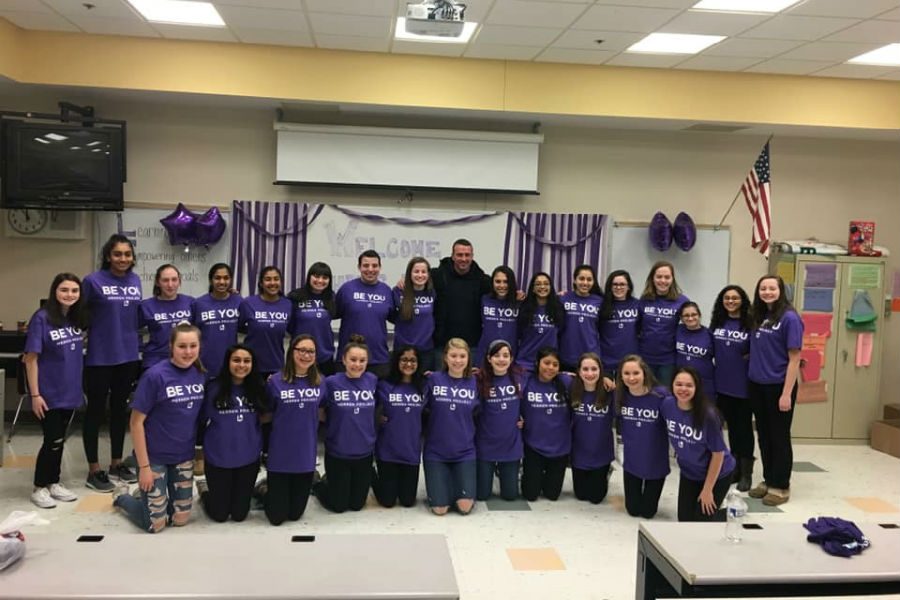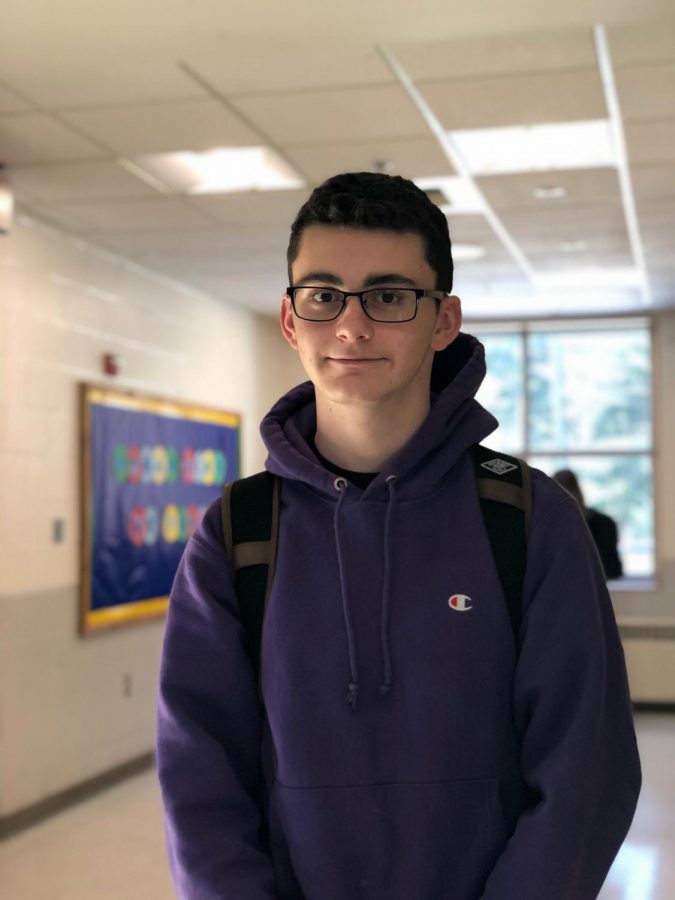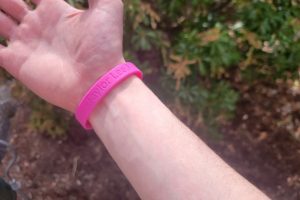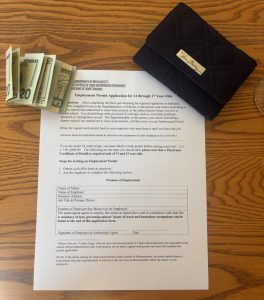Herren speaks to community
February 5, 2019
On Thursday, Christopher Herren came to Westford Academy to give a presentation to the students on addiction. Herren is a former basketball player, who played for teams such as the Denver Nuggets and the Boston Celtics, and he now speaks in over 250 events a year.
Upperclassmen were able to watch Herren in person in the main gym, and underclassmen viewed his speech in the Performing Arts Center. Students at Nashoba Valley Technical High School were also able to view the presentation through a live stream.
Herren’s presentations often tell his own story of his struggle with addiction. When Herren spoke to the community at the Performing Arts Center in the evening, he told the story of his own struggle with addiction, which is what his presentations are famous for. However, when addressing the students, Herren told a different story.
Health and Wellness Curriculum Coordinator Brian Roark started by thanking Westford Against Substance Abuse for organizing the event, as well as Westford Parent Connection, WASA Last Night, WASA Teen Center, and Westford Family Fun Fest for providing funds for the event.
Before Herren came to speak, students and faculty viewed a short documentary about his story. The documentary featured Herren’s coaches and teammates telling the story of Herren’s drug addiction and how it affected his life as a student and his career, as well as how he overcame it. The documentary showed clips of Herren playing basketball during his addiction, as well as clips of him telling his story to students, the military, and professional athletes.
Herren met with students in Project Purple before addressing the school. The Ghostwriter was able to speak with Herren during this time, and even though prevention is his main focus, there is a bigger goal he hopes to achieve through his presentations.
“I walk into schools all across the country and my goal is that one person walks out of that gym and wants to tell their story, you know, wants to share their struggle, wants to become better than what they were when they walked into the assembly,” Herren told the Ghostwriter.
Herren started by emphasizing the need to change the way students are educated about substance abuse.
“We put way too much focus on the worst day, and we forget the first day,” Herren said.
Instead of focusing just on his own struggle, Herren also told the stories of other students who reached out to him. The first story he told was about a girl who was made fun of for raising her hand after his presentation. Herren commended her for her courage to speak up in front of everyone, because he could not have done that as a high school student.
“I didn’t like raising my hand in classrooms, never mind in front of my whole school,” Herren said.
She emailed him later, telling him about how her dad was an alcoholic and her mom suffered from depression. As a result, the family struggled to make ends meet, and she was made fun of at school, and she self-harmed.
After Herren’s presentation, the student had the courage to confront everyone who made fun of her at school, and all the comments stopped. She has now been in contact with Herren for eight years.
“That little girl’s email means more to me than I think I ever accomplished in my life as a basketball player,” Herren said.
Herren then said a common question that comes up is how would he handle his teenage children drinking or smoking. Herren said he would not handle it the same way his parents did, by using punishment or anger.
“I’m going to hug them, remind them how much I love them, and I’m going to ask them one question: please tell me why,” Herren said.
Herren talked a little bit about his own life as a teenager, how he would go to parties and have to find ways to sober up before he went home to his parents. When he was 16, an author followed him and 14 other students for a season to write a book. They were a group of kids who would skip assemblies, or smoke a blunt in the back of the bleachers. Seven of them, including Herren, became heroine addicts.
“See that’s the serious thing about addiction. Nobody knows who has it. You have no idea how much you’ll suffer,” Herren said.
Herren also talked about his father’s alcoholism, and how that affected his mother and his family. He described how his mother would wait for him when he was out with his friends, and the fights that would ensue when he came home. Herren had promised his mother he would not be the same as his father, but at 14, he took two of his father’s beers with his friend.
Herren emphasized the importance of being a strong role model for younger children, especially siblings, and how decisions students make can affect their family.
“So sit in your seat right now and think of them and think of all the decisions you’re making, and ask yourself one question: do you really want your little brother to turn into you? Do you want your little sister doing what you do?” Herren said.
Herren then told a story of an eighth-grade student who died due to an overdose. His older siblings never paid attention to him, and when he got home after school one day, he convinced a seventh-grade student to drink with him, and then to take a pill. The seventh-grade student got sick, and the eighth-grade student was conflicted about calling 911. When his mom came home later, he had passed away.
“Her little boy [overdosed] trying to be like his big brother. He wanted to pop pills and drink like they did. That’s a tough casket to carry,” Herren said.
Herren commended the members of Project Purple for being courageous and for committing to being sober. Seven years ago, a student in another school who was part of Project Purple thanked Herren for his presentation, and other students began to laugh at her. Herren confronted those students during that assembly, wishing that he could have had the courage of that student.
“I wish. I wish I felt good enough on Friday nights. I wish I could have fun without it and not need it. I wish I never broke that promise I made to my poor mother. I wish I never followed my father,” Herren said.
Herren reiterated how he wanted to encourage at least one student to tell their story after his presentation.
“This assembly is no longer my story. It’s your story. It’s about you looking in the mirror and understanding the kid you’re becoming,” Herren said.
Herren told a final story about speaking to a school where a group of students wanted to laugh and talk amongst themselves. He felt uncomfortable breaking this up, so he did nothing about it. Next to that group was a freshman in tears who was being made fun of. After the assembly, the student came up to Herren and asked him to speak up in case a group of students acted that way in the future since drugs had taken her father away. Furthermore, she brought another friend who was struggling with drugs to Herren’s assembly that evening. Two months later, Herren was informed that her friend took his life at 15, on Mother’s Day.
Before closing, Herren once more commended the students who had the courage to be themselves.
“Honestly, the kids who can go to homecoming, the kids that can go to prom, the ones that can hang out on a Friday night, the ones who can walk down 12 steps to a basement, and just be themselves, those kids are my heroes. And the ones who can’t, me and my friends were just like you. I completely understand,” Herren said.
After Herren spoke, Roark came back to address the group about the importance of using the resources students have at school and having someone to confide in.
“Don’t hesitate to reach out to myself or hesitate to reach out to the people who you have made connections with over the years,” Roark said.
Keep reading to see some student reactions:








